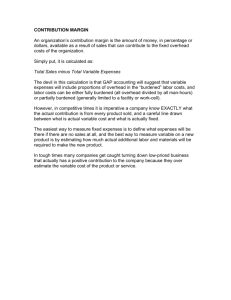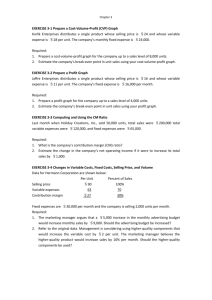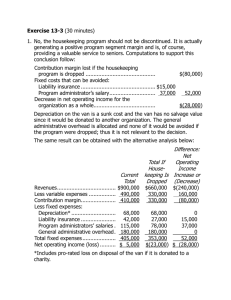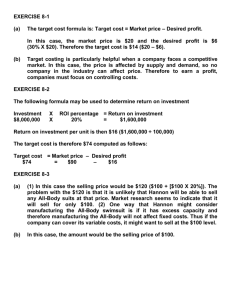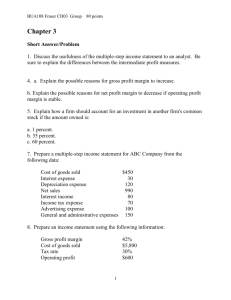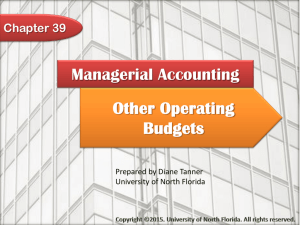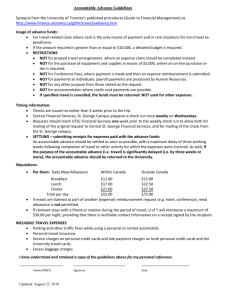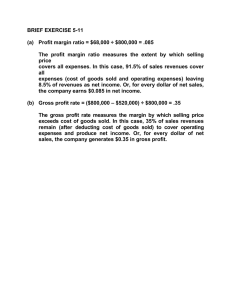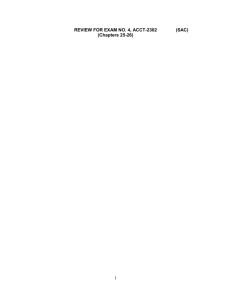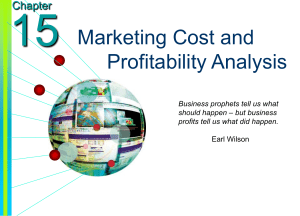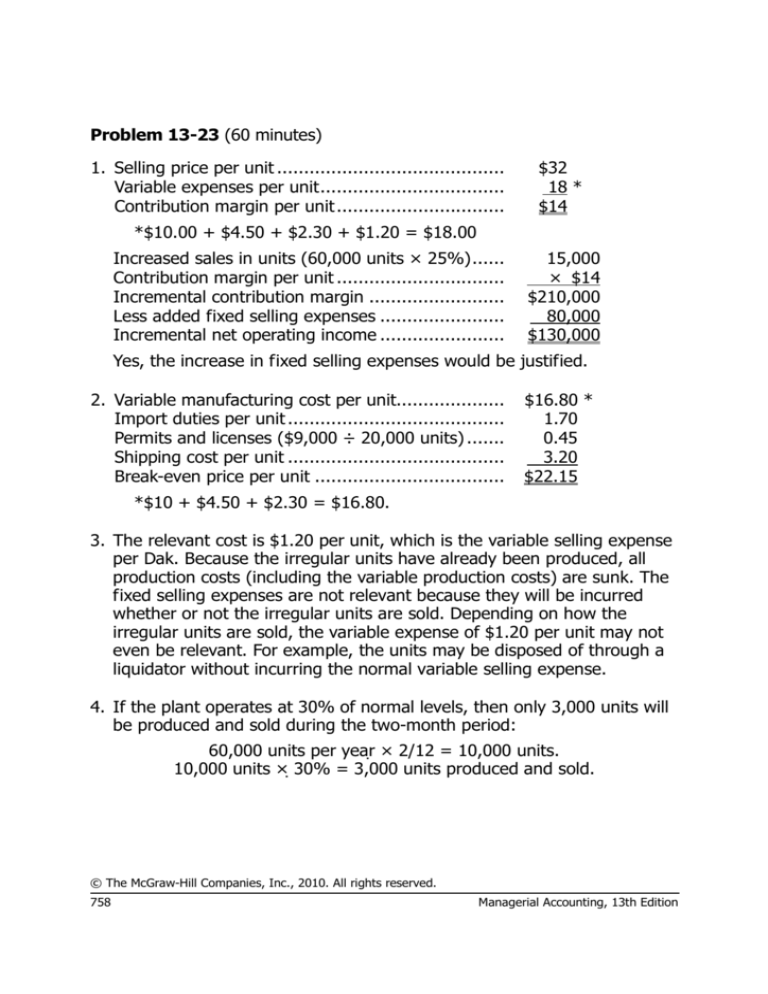
Problem 13-23 (60 minutes)
1. Selling price per unit ..........................................
Variable expenses per unit..................................
Contribution margin per unit ...............................
$32
18 *
$14
*$10.00 + $4.50 + $2.30 + $1.20 = $18.00
Increased sales in units (60,000 units × 25%)......
Contribution margin per unit ...............................
Incremental contribution margin .........................
Less added fixed selling expenses .......................
Incremental net operating income .......................
15,000
× $14
$210,000
80,000
$130,000
Yes, the increase in fixed selling expenses would be justified.
2. Variable manufacturing cost per unit....................
Import duties per unit ........................................
Permits and licenses ($9,000 ÷ 20,000 units) .......
Shipping cost per unit ........................................
Break-even price per unit ...................................
$16.80 *
1.70
0.45
3.20
$22.15
*$10 + $4.50 + $2.30 = $16.80.
3. The relevant cost is $1.20 per unit, which is the variable selling expense
per Dak. Because the irregular units have already been produced, all
production costs (including the variable production costs) are sunk. The
fixed selling expenses are not relevant because they will be incurred
whether or not the irregular units are sold. Depending on how the
irregular units are sold, the variable expense of $1.20 per unit may not
even be relevant. For example, the units may be disposed of through a
liquidator without incurring the normal variable selling expense.
4. If the plant operates at 30% of normal levels, then only 3,000 units will
be produced and sold during the two-month period:
60,000 units per year × 2/12 = 10,000 units.
10,000 units × 30% = 3,000 units produced and sold.
© The McGraw-Hill Companies, Inc., 2010. All rights reserved.
758
Managerial Accounting, 13th Edition
Problem 13-23 (continued)
Given this information, the simplest approach to the solution is:
Contribution margin lost if the plant is closed
(3,000 units × $14 per unit*) .........................
Fixed costs that can be avoided if the plant is
closed:
Fixed manufacturing overhead cost ($300,000
× 2/12 = $50,000; $50,000 × 40%).............
Fixed selling cost ($210,000 × 2/12 =
$35,000; $35,000 × 20%) ...........................
Net disadvantage of closing the plant ................
$(42,000)
$20,000
7,000
27,000
$(15,000)
*$32.00 – ($10.00 + $4.50 + $2.30 + $1.20) = $14.00
Some students will take a longer approach such as that shown below:
Sales (3,000 units × $32 per unit) ...............
Variable expenses (3,000 units × $18 per
unit) ......................................................
Contribution margin ...................................
Fixed expenses:
Fixed manufacturing overhead cost:
$300,000 × 2/12 ..................................
$300,000 × 2/12 × 60% .......................
Fixed selling expense:
$210,000 × 2/12 ..................................
$210,000 × 2/12 × 80% .......................
Total fixed expenses ..................................
Net operating income (loss) ........................
Continue
to
Operate
Close the
Plant
$ 96,000
$
54,000
42,000
0
0
0
50,000
30,000
35,000
28,000
85,000
58,000
$(43,000) $(58,000)
© The McGraw-Hill Companies, Inc., 2010. All rights reserved.
Solutions Manual, Chapter 13
759
Problem 13-23 (continued)
5. The relevant costs are those that can be avoided by purchasing from the
outside manufacturer. These costs are:
Variable manufacturing costs .....................................
Fixed manufacturing overhead cost ($300,000 × 75%
= $225,000; $225,000 ÷ 60,000 units).....................
Variable selling expense ($1.20 × 1/3) ........................
Total costs avoided....................................................
$16.80
3.75
0.40
$20.95
To be acceptable, the outside manufacturer’s quotation must be less
than $20.95 per unit.
© The McGraw-Hill Companies, Inc., 2010. All rights reserved.
760
Managerial Accounting, 13th Edition

